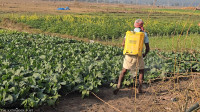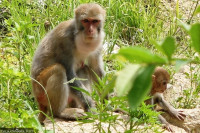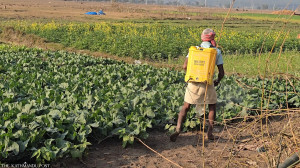Koshi Province
Tree felling by road project displaces reptiles and birds
As over 12,000 trees are being chopped along the Kakarbhitta-Laukahi section of the East-West Highway, animal habitats are being destroyed.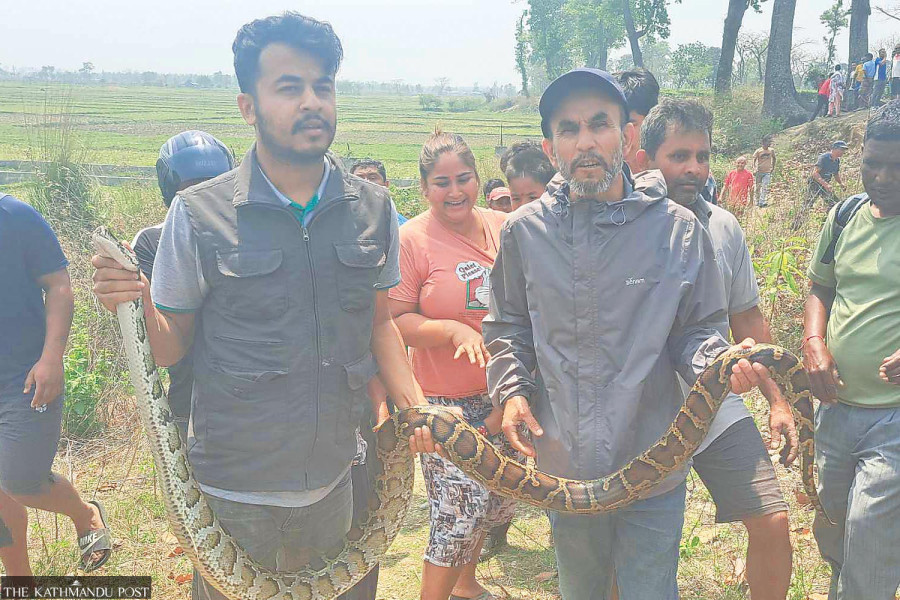
Parbat Portel
Conservationists are worried about the habitat loss, which has affected various species of wildlife, mainly reptiles, due to road widening along the Kakarbhitta-Laukahi section of the East-West Highway. They claim the extensive tree felling and human encroachment have driven reptiles and birds away, scattering them throughout the area.
The Kakarbhitta-Laukahi road widening project started cutting down the roadside trees from mid-February. According to the Ministry of Tourism, Forest and Environment of Koshi Province, more than 12,000 trees need to be felled down to widen the 120-km Kakarbhitta-Laukahi road section.
On April 2, the local residents found an Asiatic rock python, known as ajingar in Nepali, in the Satighatta tea garden area in ward 7 of Mechinagar Municipality in Jhapa. The python measured about nine feet in length. Conservationists Shankar Luitel, Devendra Kharel, Sandip Luitel and Munna Karki reached the site immediately after the locals informed them about the python. They rescued the reptile and released it in the Panchpokhari community forest.
“Some locals might have killed the python had we reached there a bit later. The crowd started pelting stones at the python. We were able to rescue the reptile on time and release it back into the wild,” said Sandip.
On April 6, yet another python was found in the Amdangi area in ward 4 of Mechinagar. A team of rescuers comprising Shankar, Sandip and Sandesh Paudel rescued the five-foot python and released it into the Telpani community forest. Similarly, on April 12, yet another python was found at the road widening project site ward 7 of Mechinagar. It was rescued and released in the nearby wetland area.
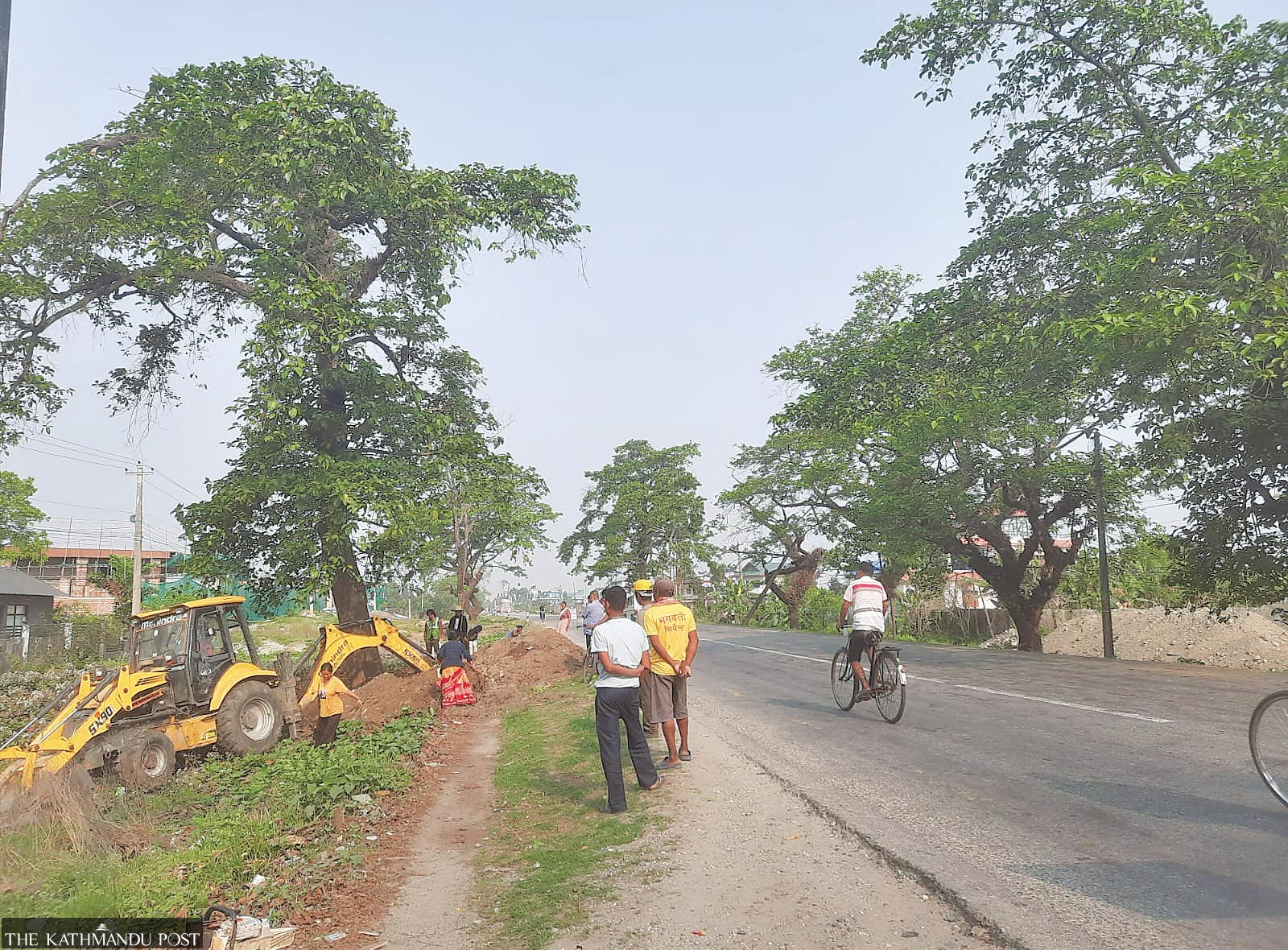
The Asiatic rock python (Python molurus) is a snake species indigenous to Nepal, India, Bangladesh, Bhutan, Pakistan, Sri Lanka among other countries. These reptiles are commonly found in the wetlands and surroundings in the Tarai region of Nepal. Asiatic rock python is listed as vulnerable on the IUCN Red List, and is a protected species under the National Parks and Wildlife Conservation Act 1973 in Nepal.
According to conservationists, the pythons have been displaced and scattered due to the felling of old trees while widening the highway. “The pythons started migrating to the north and south of the highway after the workers started chopping down trees,” said Shankar. According to him, the pythons typically live in dense forests near wetlands, seeking shelter in big logs, holes in big trees and dried leaves. “The python’s natural habitats are being disrupted due to the cutting down of trees. So they are forced to relocate to save their lives,” argued Shankar.
The forests in Jalthal and Charali are the major habitats of pythons in Jhapa.
The Kakadbhitta-Laukahi road widening project is part of the federal government plan to expand the entire East-West Highway into four lanes from the current two lanes. The government has already started widening some other sections of the highway and plans to widen more sections.
The road width along the Kakadbhitta-Laukahi has been designed as 50 metres in urban areas, 33 metres in semi urban areas, and 24 metres in rural and forest areas. The widening and improvement components will also include pavement upgrading, geometry improvement, junction improvements, service roads on both sides of the road, bicycle lanes, footpaths in urban areas, pedestrian crossings (overhead bridges/underpasses), and wildlife crossings.
The felling of trees by the road widening project has also affected various bird species. According to Kharel, who is a researcher of birds and wildlife, around 337 bird species are found in the Mechinagar area. “The tall trees near the highway are the habitat of the lesser adjutant, cormorant, and several species of heron, egret, woodpecker and barbet. The cutting down of trees has greatly affected both birds and reptiles,” said Kharel.




 10.12°C Kathmandu
10.12°C Kathmandu


